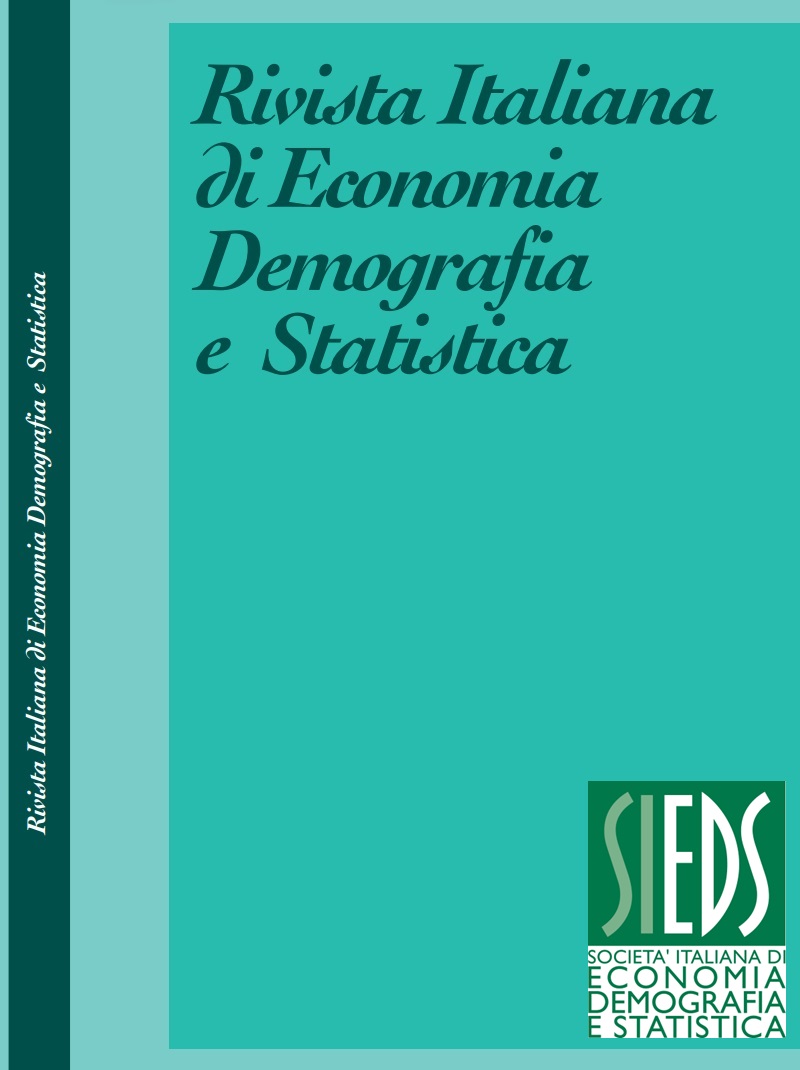Weight optimization for composite indicators based on variable importance: an application to measuring well-being in European Region
DOI:
https://doi.org/10.71014/sieds.v78i1.228Abstract
Composite indicators are widely recognized as effective tools for representing complex assessments in the form of a one-dimensional measure. The proliferation of related theoretical frameworks and methodologies has been accompanied by a growing debate around the determination of optimal weights in developing composite indicators. This paper introduces two weighting procedures aimed at assisting developers in attaining the most plausible solution, which closes the disparity between the importance of input features and their corresponding weights. The first technique involves utilizing variance-based sensitivity analysis and calibrating the weights in accordance with the contribution of each input to the output uncertainty. Alternatively, the second approach employs a combination of cluster analysis and predictive modeling to evaluate the relative capability of individual features in differentiating observations within the multidimensional context, thereby informing a proper weight assignment. To demonstrate the practical application of these weighting procedures, a composite indicator has been developed to assess the level of well-being in large European regions during the ten-year period from 2010 to 2019. Despite differences in the weighting schemes used to calculate the final index values, the empirical results indicate a general consensus regarding the allocation of welfare across the territories.
Downloads
Published
Issue
Section
License
Copyright (c) 2024 Viet Duong Nguyen; Chiara Gigliarano

This work is licensed under a Creative Commons Attribution 4.0 International License.



